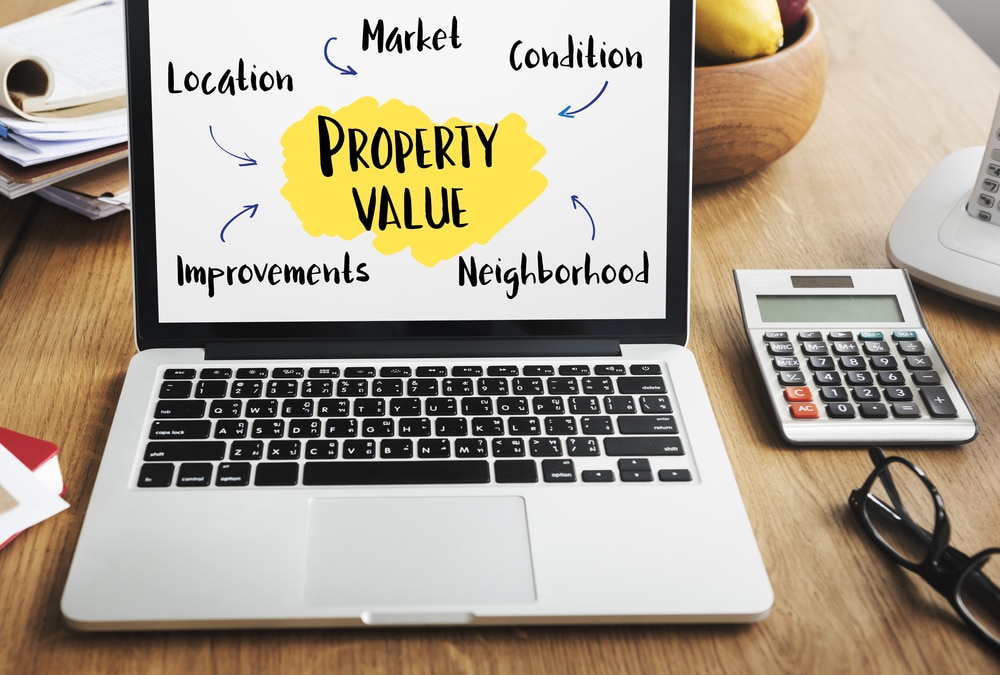
Published
What is fair market value? | How to calculate FMV | FMV vs. appraised value | Tax assessed value | FAQ | Why trust us
Whether you need help setting a listing price on your home or determining a fair price to offer for a property, determining its fair market value is an important first step.
Fair market value is the price a willing buyer would pay for a property in the current market. It factors in location, condition, size, and market conditions.
Estimating a property’s fair market value can be tricky. Unlike an appraised value, there’s no defined formula or method for calculating fair value.
We break down the best ways to find or determine fair market value, and the differences between market value and appraised value.
What is fair market value in real estate?
Fair market value is what a house should sell for in the open market. In other words, it’s what a buyer is most likely willing to pay for the property based on the home’s desirability.
Several factors impact fair market value, including its location, condition, size, features, amenities, and current market trends.
Fair market value in real estate is largely determined by what similar properties are selling for in the same neighborhood or subdivision, also called comparables or comps. Real estate agents and appraisers regularly pull comps to determine a home’s fair value.
Who should check a home’s fair market value?
Home sellers
Learning a home’s fair market value before putting it on the market is crucial. An accurate home valuation serves a few main purposes:
- It can help you avoid overpricing or underpricing your home. Pricing it right makes it easier to sell and can potentially save you thousands.
- You can learn your expected net proceeds in a sale, and budget for potential pre-listing and post-listing expenses, like home staging and capital gains taxes.
Want a rough idea of what your house is worth and an estimated selling range? Plug your address into online home value estimators. These online tools can provide a rough value estimate based on the home’s key features and recent comparable sales.
» JUMP: Other ways to calculate a home’s fair market value
Home buyers
Listing price doesn’t always equal its fair market value. Sellers are known to misprice homes frequently – especially those selling without the help of an agent.
Finding out a home’s estimated fair market value can help home buyers in several ways:
- It gives buyers more negotiating power and can help buyers avoid offering too much for a home and getting a bad deal if the property is overpriced.
- Buyers can submit a fair, competitive offer on a property, potentially beating out lowball offers.
- It can help buyers stay within their spending limits and avoid going over budget.
Researching similar properties in the area is the best way for a home buyer to determine if a listing price is fair or not. We recommend working with an experienced buyer’s agent, who can help you evaluate properties and submit competitive offers.
Refinancers
Learning a property’s fair market value can also help homeowners determine if they have enough home equity to pursue mortgage refinancing to lower the cost of their mortgage.
A general rule of thumb is that you need at least 20% equity in a home to refinance. Calculate this percentage by subtracting your mortgage balance from your home’s value, and then dividing that figure by its value:
Fair market value – current mortgage balance = Home equity
Home equity / fair market value = Home equity percentage
| Category | Sum |
|---|---|
| Fair market value | $500,000 |
| Current mortgage balance | $350,000 |
| Home equity | $150,000 |
| Equity percentage | 30% |
However, other factors to consider before pursuing refinancing include if the mortgage carries a prepayment penalty, your credit score and if you plan to move soon.
The Consumer Finance Protection Bureau (CFPB) details when homeowners should (or should not) consider refinancing.
How to calculate the fair market value of a home

1. Compare online home values
Websites like Zillow, Redfin, and Realtor.com provide users with an automated valuation model (AVM), also known as a home value estimator, to calculate fair market value.
These sites are fast, free, and easy to use, and can help you determine a home’s estimated fair market value within seconds. The sites rely on public data, such as a home’s bedrooms, bathrooms, square footage, and recent area home sales, to calculate home values.
Home value websites are from perfect – even the best websites can be off by thousands of dollars. But if you’re not ready to meet with an agent, they provide a useful alternative.
⚡ How much is my house worth? Get a free home value estimate for a real estate agent
2. Get a comparative market analysis (CMA)
If you’re serious about selling your home soon, request a CMA report from an agent to learn your home’s fair market value.
A CMA is usually more accurate than online home value estimates for several reasons:
- A real estate agent pulls sales data from the multiple listing service (MLS), which contains the most accurate, up-to-date home sales information.
- Realtors hand-pick comparable home sales, unlike a home value website, which chooses sales based on an algorithm (and often chooses outdated or irrelevant sales).
- A real estate pro can give your home credit for any of its updates, renovations, or improvements, which a home value website may not be aware of.
We can match you with several local realtors, so you can request multiple CMA reports and compare the numbers for the most accurate fair market value estimate.
» LEARN: What is a CMA in Real Estate?
3. Pay for a broker’s price opinion (BPO)
A BPO is very similar to a CMA report or home appraisal. It’s a home value estimate prepared by a real estate expert, based on your home’s condition and comparable properties.
However, unlike a CMA report, a BPO usually isn’t free ($150 – $250). BPOs also tend to be less detailed and comprehensive.
A BPO could make sense if you plan on selling without a realtor, but still want a professional opinion of your home’s fair market value (and don’t mind paying for it).
Fair market value vs. appraised value

A home’s appraised value and fair market value are not the same. Appraisal value is what a licensed, state-certified appraiser says it’s worth based on the results of an appraisal.
Factors considered by an appraiser include:
- Your home’s condition, size, and location.
- Upgrades, renovations, or improvements made to the property, such as a new kitchen or bathroom remodel.
- The condition of the home’s major components, including its HVAC, roof, and foundation.
- Energy efficient additions like tankless water heaters, Energy Star-rated appliances, solar panels, and insulated windows.
In addition, appraisal value could be higher or lower than its fair market value. It’s an objective valuation of a home by a professional, while fair market value is simply what a buyer is willing to pay for the property.
Unlike a home value estimator or a CMA report from a realtor, you have to pay for an appraisal ($350 – $500), and the report can take a few days or longer to complete.
» LEARN: Should you get a pre-listing appraisal before selling?
Fair market value vs. tax assessed value
Tax assessed value is not the same as its fair market value or appraisal value.
Tax assessed value determines a home’s annual property taxes. A local county or city assessor values a home based on its location, condition, features, and the price of comparable homes.
Tax values often come in lower than a home’s fair market value, as it may be calculated as a percentage of the home’s value. The actual percentage or calculation varies widely by location.
For example, an assessor may determine that a home’s fair market value is $500,000. But if the area uses an assessment ratio of 90%, the home’s tax assessed value would be $450,000.
Tax assessed values should only be used to help you plan for your potential tax bill, and should not be used to set a listing price or determine a fair offer price on a home.
FAQ
What does fair market value in real estate mean?
Fair market value is the price a buyer is willing to pay for a property in the current market. It considers location, condition, size, and market conditions. You can get an estimate of a home's fair value through online home value estimators, or a CMA report from a realtor.
Is fair market value the same thing as appraised value?
No. An appraisal value is a home's objective value determined by a licensed appraiser. A home's appraisal value is often higher or lower than its fair market value. For example, a buyer might be willing to pay $500,000 for a property, but an appraiser might think the home's fair value is lower than that based on the appraisal results.
How do you find a home's fair market value?
You can find a home's fair market value by running the property through online home value estimators, requesting a CMA report from a licensed real estate agent, or paying for a broker's price opinion (BPO) report. You can try to determine a home's value on your own, but it's best to enlist the help of a professional for a more accurate value.
Why you should trust us
Real Estate Witch’s mission is to provide accurate, actionable, and practical information you can use to make better decisions on your real estate journey.
About the author
Steve Nicastro is a real estate agent, investor, and personal finance writer based in South Carolina. He closed 19 transactions as a full-time agent between 2020-21, and helped numerous clients determine their home’s fair market value before setting an accurate listing price.
Steve has shadowed several top-producing agents in the Charleston, S.C. market, learning the ins-and-outs of the business – including how to complete a CMA report for an accurate price analysis.
Before writing for Real Estate Witch and working as an agent, Steve spent more than six years on NerdWallet’s content team as a personal finance writer. His work has published in USA Today, The New York Times, The Associated Press, and US News, among other publications.
Related reading
Best home value estimators ranked. What are the best home value estimator options? Read on to learn more about the best AVMs, such as Realtor.com, Zillow, and Redfin.
Redfin vs. Zillow home value accuracy compared. Which popular home value estimator provides users with the most accurate home values? We put each tool to the test.
What is a CMA in real estate? A CMA provides buyers and sellers with a home’s fair market value. Learn what’s included in a CMA report, and how to get one for free.
Pre-listing appraisal: What you NEED to know. A home’s fair market value should not be confused with its appraisal value. Learn more about pre-listing appraisals, and if you should get one before selling.


Leave a Reply